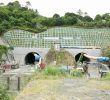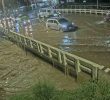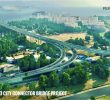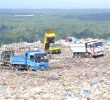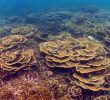Nine beaches in the city failed� water-sampling tests
DAVAO CITY — Despite marketing Davao City as a premier islands-to-highland getaway and a land of cool highlands and sunny beaches, the Department of Tourism in Southern Mindanao will not promote beaches or resorts that fail to pass the safety standards set by the Department of Environment and Natural Resources.
�DOT will not promote unsafe beaches. We respect DENR�s findings,� said Roger Layson, assistant regional director for DOT in Southern Mindanao.
Last Sunday at his weekly television show Gikan sa Masa, Davao City Mayor Rodrigo Duterte read a letter from the Center for Health Development Davao Region of the Inter-Regional Inter-Agency Committee. The letter contained the list of nine beaches in the city, which had failed the water-sampling test conducted by the DENR-Environmental Management Bureau.
The beaches were found to have high pathological contamination and indicated severe water pollution. All of these unsafe beaches were located along Davao City�s coastline.
Layson said that these beach resorts are not accredited with the DOT. He, however, feels sad that pollution is threatening the city�s coastline but said that it is a problem for the local tourism.
�We treat it as a positive development that DENR is closely monitoring the quality of our waters, it is a wake-up call for us to do something for the environment.� Said Layson.
Up until the 1980s, Davao City prided itself with its mainland beaches like Times Beach in Matina, Coaco beach in Sasa and Guinoo beach in Sirawan, favorite destinations for many of the residents and visitors during weekends and on hot summer months.
However, an expanding population coupled with wanton disregard for the environment has contaminated these beaches with bacteria and other pathological wastes which made it unfit for swimming.
Many of the beaches in the report that had passed the water-sampling test were still found in the still pristine coastline of Samal, which the DOT has vigorously marketed as an island getaway in its Island-to-highland program. (PIA/RG Alama)

